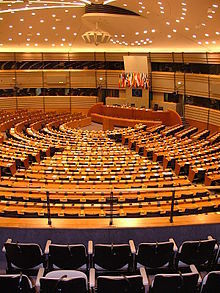The Euromess And The Limits Of Elite-Driven Policymaking

Ryan Avent seemed to me to have the basic logic of European fiscal consolidation right: "The point at which euro-zone leaders said, 'From here on in, we're in the same boat with them', was back when the euro zone was created. That boat has sailed."
Except I gather that what happened is that the Eurozone's political leaders spent the 1990s not explaining this correctly to the citizens they purported to represent. Or, specifically, the leaders of France and Germany didn't explain it. How exactly this worked is a bit mysterious to me. Of course politicians all over the world lie, but normally you expect partisan competition to at least put this kind of issue on the table. But there seems to have been an adequate degree of elite consensus to keep the fundamental question off the table. Somehow the Brits and the Swedes escaped this fate, but the other nations of Europe (including formally non-euroized but practically pegged Denmark) are now caught up in a kind of grim machinery of financial doom. The only way to make the system workable is a level of fiscal and political integration that is, apparently, totally unacceptable to the voters. Which is fine, but the decision should have been put to them before getting the countries bound up in a remorseless logic of integration. A lot of people are going to be put through an awful lot of avoidable suffering before this ends, and I'm guessing nobody's going to say "sorry" or admit to error. If the continent's mainstream political parties manage to end up discrediting themselves in the process, it'll be hard to say they don't deserve their fate no matter how distasteful some of the rising extreme movements are in many ways.


Matthew Yglesias's Blog
- Matthew Yglesias's profile
- 72 followers



